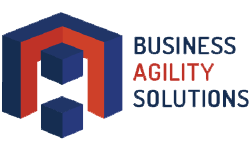TQM
Principles and Road to Implementation
The main impetus for the growing importance of the total quality management is the realization of the critical role quality plays as the key to competitive success in the increasingly globalized business environment. Upper managers now understand much more clearly the importance of integrating quality dimensions into all the organizational functions convinced by the threat of the consequences of product or service failure, by the rapid shift of power to the buyers and by the demands of global competition in costs, performance, and service.
Total Quality Management spread throughout manufacturing industries, service sectors, government, and non-profit organizations. Total Quality Management, remain a key strategy for change management.
Course Overview
Total Quality Management (TQM) is an approach that seeks to improve quality and performance which will meet or exceed customer expectations.
This can be achieved by integrating all quality-related functions and processes throughout the company. TQM looks at the overall quality measures used by a company including managing quality design and development, quality control and maintenance, quality improvement, and quality assurance.
Quality is at the top consumer’s lists of demands and many companies have been forced to assign priority to the development of high quality products and services which is indispensable to TQM strategy that takes into account all quality measures taken at all levels and involving all company employees.
This program provides managers at all levels with evidence that “it can be done here,” and, more important, how it should be done.
Program feature real-world field experience and exercises that involve developing innovations to enhance the knowledge and skills of participants.
Learn from world class consultants and trainers how to live TQM and how to reap real gains out of its deployment.
If you are looking for proven approaches to integrating total quality management techniques into daily work, this is your program.
Course Objectives
- Changing the organization from functional focused to customer focused, where customer priorities come first in all activities to achieve and sustain customer satisfaction and loyalty that leads to increased market share and profit.
- Guiding the organization by its values, vision, mission, and goals set through ‘strategic planning’.
- Continual improvement of all business operations across the organization aiming to superiority in quality, speed, cost and flexibility.
- Create and promote the believe in the continuous improvement environment where people are at the core of every activity (total involvement), and are encouraged and empowered to work in teams.
- Master the concept and methodology of TQM implementation and overcome roadblocks.
- Promoting the organization flexibility, transparent leadership and learning environment to cope effectively with the continual changes.
Course Outline
1. Introduction to Quality Management
- Historical Development
- Quality Management Functions
- Management By Fact
- Quality Control, Assurance and Systems
- Culture Change
2. Quality Gurus and Quality Circles
3. Total Quality Management Elements
4. Total Quality Management Implementation
- General Model for Implementation
- Intangible Factors in Implementation
- How to Overcome Implementation Roadblocks
5. Quality Control Tools
5.1 Classic Tools (Measure and Analysis)
-
- Flowchart
- Ishikawa Diagram
- Data Collection and Check Sheet
- Pareto Diagram
- Scatter Diagram
- Histogram
- Statistical Process Control Charts
5.2 New Tools (Planning and Management)
-
- Activity Network Diagram
- Affinity Diagram
- Matrix Diagram
- Interrelationship Diagraph
- Process Decision Program Chart
- Prioritization Matrix
- Tree Diagram
6.Process Improvement Techniques
- Ask 5 Whys
- SIPOC
- Business Process Reengineering (BPR)
- Deming Continuous Improvement Cycle (PDCA)
- Failure Modes And Effects Analysis (FMEA)
7. Project/Case Study Discussion
Who Should Attend?
This course is designed to match candidates working into any function across the organization with any educational background, little or no practical experience and they want to be effective change agents into their organizations and leaders in total quality management initiatives.
Candidates may be from any type of business or fresh graduates or students.
Course Duration
45 hours.
More Information
If you need more information,
contact us at:
info@b-agility.net
Or: 01271242202




